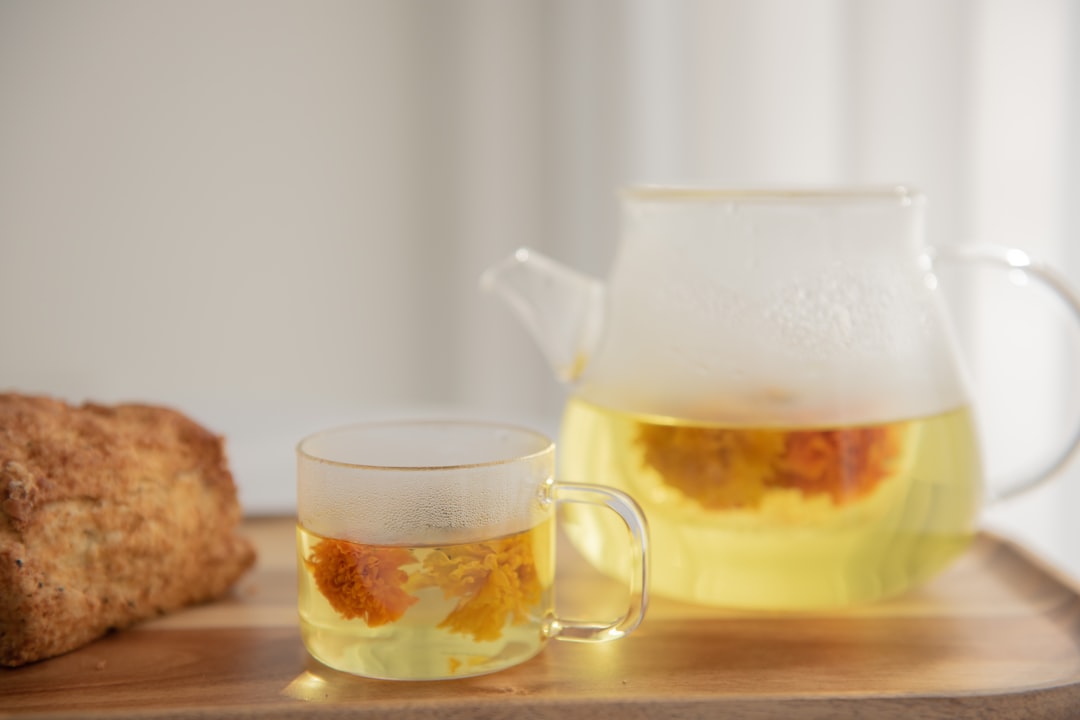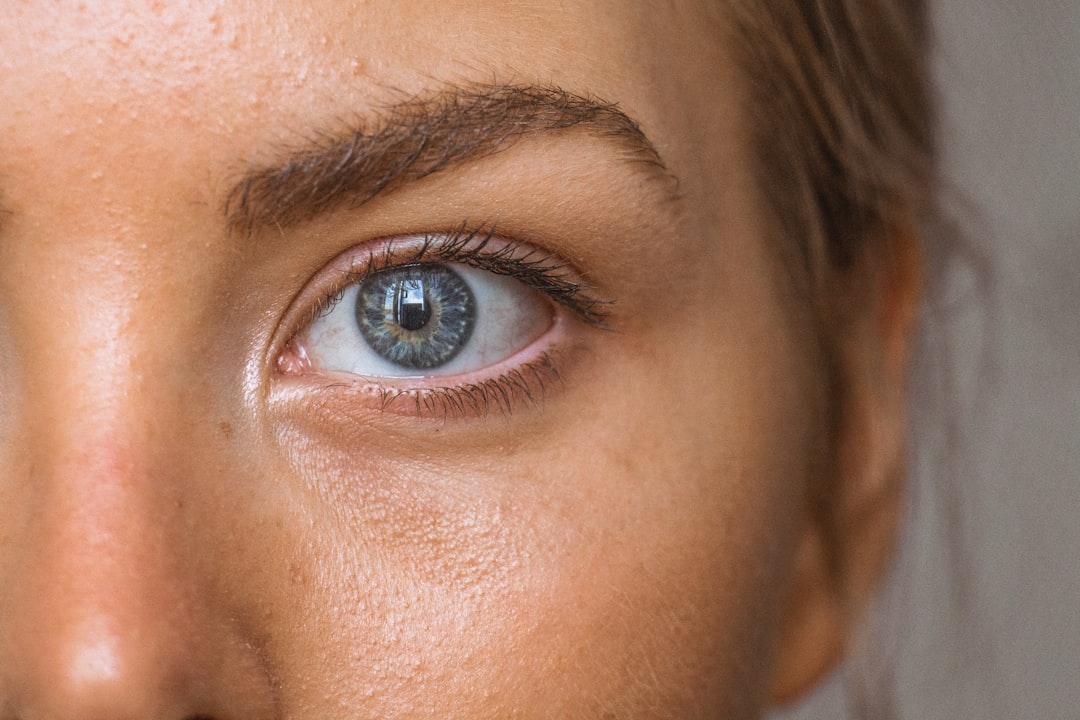10 Amazing Benefits of Chrysanthemum Tea
Want to optimize your health? You may not know it, but there are numerous benefits of Chrysanthemum tea. In this post, we’ll share ten of them with you.
Chrysanthemum tea or "ju hua" is one of our favorite teas! It has a sweet, floral flavor and is often paired with honey. It's great anytime, but particularly wonderful when you've got a fever or experiencing cold symptoms.
The flower tea is crafted from the blooms of Chrysanthemum morifolium or Chrysanthemum indicum, a beloved beverage of East Asia, especially in China. Tea lovers love it for not only the taste but also its many health benefits.
In today’s article, we're going to share with you some of the amazing chrysanthemum tea benefits.
The History of Chrysanthemum Tea in Traditional Chinese Medicine
For centuries, people have turned to Chrysanthemum tea to help them cool down their bodies and to help with respiratory problems. It supports liver and kidney health in traditional Chinese medicine. The tea is also known for getting rid of toxins, clearing heat and having powerful antioxidants which can help keep you stay healthy.
What Are The Health Benefits of Chrysanthemum tea?
1. Immune Booster
Drinking Chrysanthemum tea is an excellent way to keep your immune system strong and healthy. Packed with beneficial minerals like potassium, magnesium, and calcium, this aromatic beverage is also full of antioxidants that fight off free radicals and protect your body from the effects of harmful toxins. Plus, its anti-inflammatory properties can help soothe infections, inflammation and upset stomachs, while its relaxant qualities also boost mental and physical relaxation.
2. Lower Blood Pressure and Cholesterol
In addition to its antioxidant benefits, chrysanthemum tea can also help you maintain healthy cholesterol levels. The tea's high content of polyphenols has been linked to reducing levels of LDL ('bad') cholesterol, while also increasing HDL ('good') cholesterol levels.
Studies have shown that regular consumption of this type of tea can reduce your risk of developing cardiovascular disease and other serious health issues. Moreover, research has indicated that drinking chrysanthemum tea can prevent the oxidation of lipids in the bloodstream, which is an important factor in controlling both high blood pressure and cholesterol. Additionally, the tea's anti-inflammatory properties may help reduce inflammation levels in the arteries and veins, thus providing additional protection for your heart and circulatory system.
3. Digestive Aid
The Chrysanthemum Flowers are high in antioxidants. Antioxidants scavenge harmful toxins and byproducts that can damage cells, leading to inflammation and disease. The Chrysanthemum Flowers are also a good source of Vitamin C, which is important for collagen production, wound healing, and immune system function.
4: Natural Source of Vitamins A, B, and C.
These vitamins are important for keeping the body healthy. Vitamin A is important for vision, vitamin C is important for the immune system, and vitamin B is important for the nervous system.
5. Good For Your Skin
Chrysanthemum has antibacterial and anti-inflammatory effects. According to a study published in the Journal of Cosmetic Dermatology, topical application of chrysanthemum-based mixes helped to decrease skin markings by lowering melanin levels. Other studies showed that the plant may help minimize the appearance of skin damage similar to those produced by atopic dermatitis. Anecdotal evidence suggests that it can help with spots and acne.
6. Improved Digestion
Drinking Chrysanthemum tea is a great way to improve your digestion and keep your gut healthy. The chrysanthemum flowers are high in antioxidants, which can help to protect the gut from damage and inflammation.
7. Preventing Cancer
There is some evidence that chrysanthemum may help prevent cancer. Chrysanthemum contains a compound called chrysin, which has been shown to inhibit the growth of cancer cells in test tubes. However, more research is needed to determine whether chrysanthemum can help prevent cancer in humans.
8. Treatment for Bone Disorders like Osteporosis
Chrysanthemum may help to treat bone disorders like osteoporosis. One study showed that rats who were given Chrysanthemum extract had increased bone density and strength. Another study showed that women who drank Chrysanthemum tea for 3 months had increased bone density. Right now, research is limited but Chrysanthemum may be a promising treatment for bone disorders.
9. Reducing Inflammation
Chrysanthemum is a flower that has been used for centuries in traditional Chinese medicine to reduce inflammation. A recent study found that chrysanthemum extract can help reduce inflammation in mice with arthritis. The extract was able to reduce inflammation by blocking the production of inflammatory molecules. Chrysanthemum is a safe and natural way to reduce inflammation and maybe a helpful treatment for arthritis and other inflammatory conditions.
10. Helpful for Hangovers
There is some evidence that chrysanthemum may help with hangovers. One study showed that participants who drank chrysanthemum tea had lower levels of hangover symptoms than those who didn't drink the tea. The tea is thought to help by speeding up the body's ability to break down alcohol and by providing antioxidants that can help protect the liver.
Is there caffeine in Chrysanthemum tea?
Chrysanthemum tea is a drink made from flowers, not from tea leaves. This means there is no caffeine in the drink.
How Do You Prepare it?
Chrysanthemum tea has a light, refreshing taste and can be enjoyed hot or cold. To prepare, steep 1-2 teaspoons of chrysanthemum flowers in 8-10 ounces of hot water for 3-5 minutes.
Are there any side effects associated with drinking chrysanthemum tea?
While rare, some people might have a skin reaction if they touch chrysanthemum, or if they drink tea made from it. This might include a rash, increased sensitivity to sunlight, or an increased chance of getting a sunburn.
It's best to ease your way into drinking chrysanthemum tea. Start with one or two cups a week to assess if it will work for you. It's important to note that those with allergies to flowers in the daisy family might experience adverse reactions. Adding the tea gradually to your diet can help you find out which results it brings personally.
Another warning: if you're taking medication that weakens your immunity, be sure to consult with your doctor prior to using chrysanthemum tea for therapeutic purposes.
Conclusion:
Chrysanthemum tea is an excellent choice for those looking to make a healthy switch in their beverage choices. With its sweet floral flavor and caffeine-free profile, it makes the perfect drink to enjoy any time of day. Plus, this powerhouse bloom offers a wide range of benefits including improved digestion, relief from stress and anxiety, detoxification, prevention of cancer, and treating bone disorders like osteoporosis. If you’re looking to add some health and wellness into your life, Chrysanthemum tea might just be what you need.
You might not think of yourself as someone who needs an extra boost of immunity, but if you do get sick, traditional Chinese medicine could help you feel better faster. Check out these 9 TCM herbs to add to your regimen this winter.
References:
Choi, K. T., Kim, J. H., Cho, H. T., Lim, S. S., Kwak, S. S., & Kim, Y. J. (2016). Dermatologic evaluation of cosmetic formulations containing Chrysanthemum indicum extract - PubMed. Journal of Cosmetic Dermatology, 15(2). https://doi.org/10.1111/jocd.12211
Hong, S.-I., Kwon, S.-H., Kim, M.-J., Ma, S.-X., Kwon, J.-W., Choi, S.-M., Choi, S.-I., Kim, S.-Y., Lee, S.-Y., & Jang, C.-G. (2012). Anxiolytic-Like Effects of Chrysanthemum indicum Aqueous Extract in Mice: Possible Involvement of GABAA Receptors and 5-HT1A Receptors. Biomolecules & Therapeutics, 20(4), 413–417. https://doi.org/10.4062/biomolther.2012.20.4.413
Jang S, Lee J, Lee MS, Lee YJ, Jeong Y, Kim Y. Polyphenol Enriched Chrysanthemum morifolium Extract Increase Energy Expenditure and Decrease Hepatic Lipid Accumulation in Rats Fed a High Fat Diet. Current Developments in Nutrition. Published 2022. Accessed February 10, 2023. https://www.semanticscholar.org/paper/Polyphenol-Enriched-Chrysanthemum-morifolium-Energy-Jang-Lee/7b0a98d1634968cf982c31a2b85a2cd9d03ad17e
Kim, C., Kim, M.-C., Kim, S.-M., Nam, D., Choi, S.-H., Kim, S.-H., Ahn, K. S., Lee, E. H., Jung, S. H., & Ahn, K. S. (2013). Chrysanthemum indicum L. extract induces apoptosis through suppression of constitutive STAT3 activation in human prostate cancer DU145 cells - PubMed. Phytotherapy Research : PTR, 27(1). https://doi.org/10.1002/ptr.4689
Luyen, B. T. T., Tai, B. H., Thao, N. P., Cha, J. Y., Lee, H. Y., Lee, Y. M., & Kim, Y. H. (2015). Anti-inflammatory components of Chrysanthemum indicum flowers - PubMed. Bioorganic & Medicinal Chemistry Letters, 25(2). https://doi.org/10.1016/j.bmcl.2014.11.054
Park, S., Lee, J. B., & Kang, S. (2012). Topical Application of Chrysanthemum indicum L. Attenuates the Development of Atopic Dermatitis-Like Skin Lesions by Suppressing Serum IgE Levels, IFN-γ, and IL-4 in Nc/Nga Mice. Evidence-Based Complementary and Alternative Medicine : ECAM, 2012, 821967. https://doi.org/10.1155/2012/821967
Wang, F., Zhang, Y.-J., Zhou, Y., Li, Y., Zhou, T., Zheng, J., Zhang, J.-J., Li, S., Xu, D.-P., & Li, H.-B. (2016). Effects of Beverages on Alcohol Metabolism: Potential Health Benefits and Harmful Impacts. International Journal of Molecular Sciences, 17(3), 354. https://doi.org/10.3390/ijms17030354
Get your daily dose of wellness delivered straight to your inbox. Sign up now for our newsletter.
Disclaimer:
These statements have not been evaluated by the Food and Drug Administration. This product is not intended to diagnose, treat, cure, or prevent any disease.
The content is purely informative and educational and should not be construed as medical advice. Any opinion expressed should not be treated as a substitute for professional medical advice. By using this website, you accept our Terms & Conditions and Privacy Policy. We cannot guarantee the accuracy of the information presented at this site. This article is not intended to be used as a substitute for the diagnosis and treatment of any health problem or to prescribe any medication or other treatment. You should consult with your health care provider before starting any diet, exercise, or supplementation program, before taking any medication, or if you have or suspect you might have a health problem.






